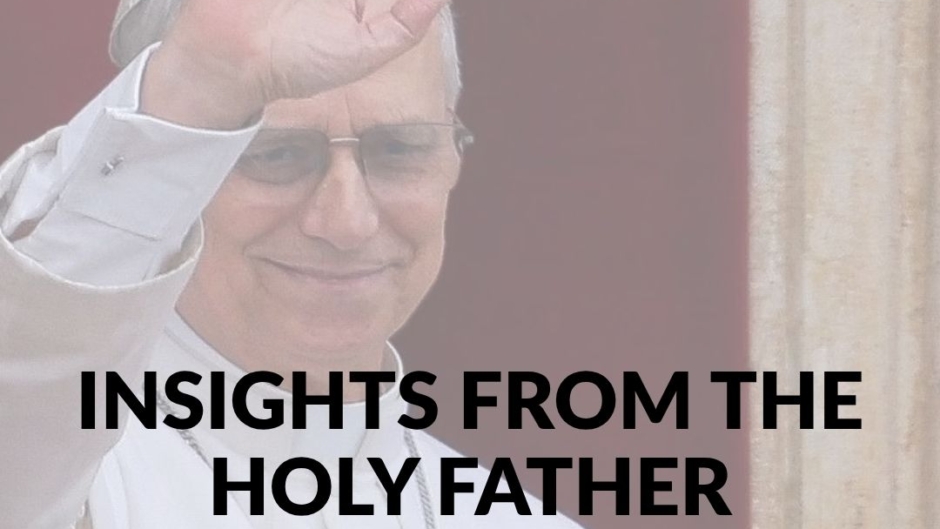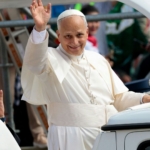What is Dilexi te?
In the document, Pope Leo focuses on the global issue of poverty, emphasising God’s love for the most vulnerable and the marginalised. The Pope highlights the evolving nature of poverty, noting “old forms of poverty…are being joined by new ones” (9).
The Pope underscores the Church’s preferential option for the poor, a principle of Catholic Social Teaching rooted in God’s own concern for the weakest. In light of Christ, who joined us in our poverty “in the smallness of a child laid in a manger and in the extreme humiliation of the cross…” (16), the Church is called to make “decisive and radical choices in favour of the poor”. He also reminds us that the Church’s true wealth is not found in material riches. Drawing on St Ambrose’s writing about the life of St Lawrence, he quotes “What draws does Jesus have that are more precious than those in which he loves to show himself?” (38) – itself a reference to Matthew 25:40.
Reflecting on this call to serve the poor, Pope celebrates the legacy of the Church’s service, from the institution of the Diaconate in the Acts of the Apostles to the establishment of Catholic healthcare clinics and other institutions. “The Christian presence among the sick reveals that salvation is not an abstract idea, but concrete action”, he writes “When the Church kneels beside a leper, a malnourished child or an anonymous dying person, she fulfils her deepest vocation: to love the Lord where he is most disfigured” (52).
He expands on other dimensions of poverty, including the liberation of prisoners, education for the poor and support for migrants. Importantly, he cautions against viewing the poor as mere recipients of charity. Instead, he calls us to “consider marginalised communities as subjects capable of creating their own culture” (99). Their experiences of society and faith offer insights that we may lack; quoting Pope Francis, Leo affirms that we must “let ourselves be evangelised” by the poor (102).
To conclude, Pope Leo offers a quote from a speech given by St Gregory of Nazianzus:
“If you think that I have something to say, servants of Christ, his brethren and co-heirs, let us visit Christ whenever we may; let us care for him, feed him, clothe him, welcome him, honour him, not only at a meal, as some have done, or by anointing him, as Mary did, or only by lending him a tomb, like Joseph of Arimathea, or by arranging for his burial, like Nicodemus, who loved Christ half-heartedly, or by giving him gold, frankincense and myrrh, like the Magi before all these others. The Lord of all asks for mercy, not sacrifice… Let us then show him mercy in the persons of the poor and those who today are lying on the ground, so that when we come to leave this world they may receive us into everlasting dwelling places.” (118)





